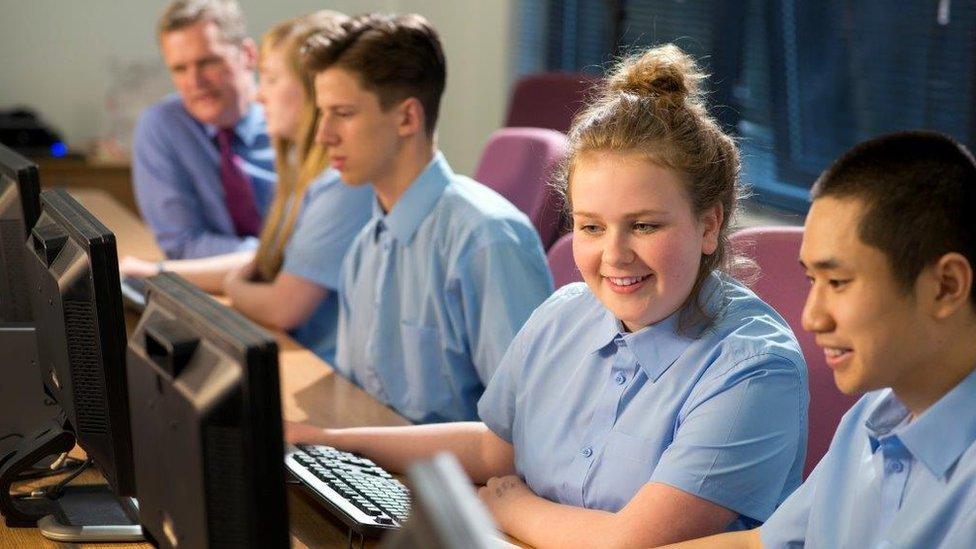Women in computing - there is good news and bad
- Published
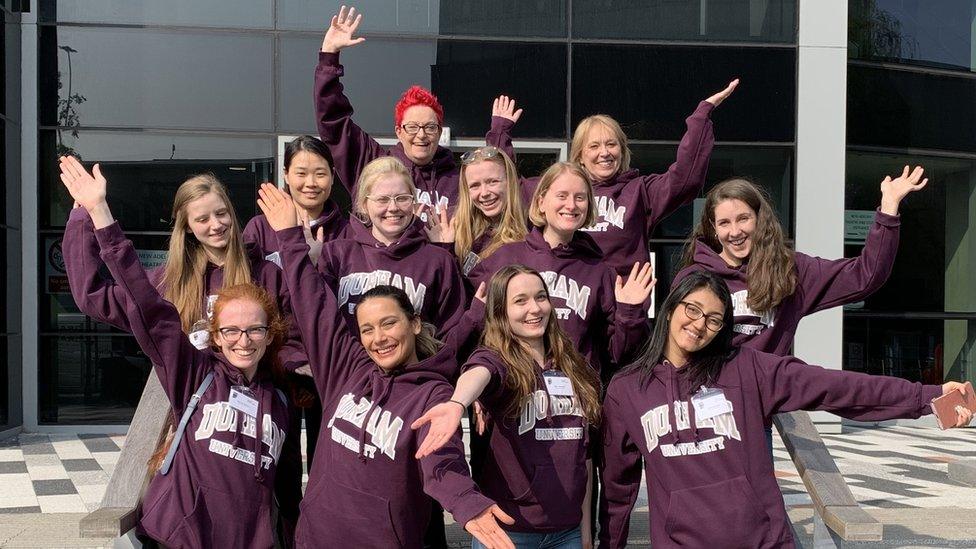
Durham attendees at an annual conference for women in computing
I've been told two stories in recent days about the gender gap in computing education.
The good news: a major university has doubled the number of women arriving to study computer science in the space of a year.
The bad: the latest GCSE figures show the number of girls getting any kind of computing qualification at school continues to decline.
Doubling up
The optimism comes from Durham University, where 45 women are starting a computer science degree this year, up from 22 last year. They make up 30% of this year's intake, compared with a national average of 16%.
This is the result of a determined effort to recruit more female students - led by an inspirational figure.
Prof Sue Black, who mounted a successful campaign to save the wartime coding centre Bletchley Park, has for years been running all sorts of initiatives to get more women involved in technology.
In 2018, Durham recruited her with a specific brief to persuade more female A-level students to think about coming to the university to study computing.
Prof Black remembers the head of department, Gordon Love, telling her he wanted to make Durham computer science "the number one destination for women in tech".
So what made the difference?
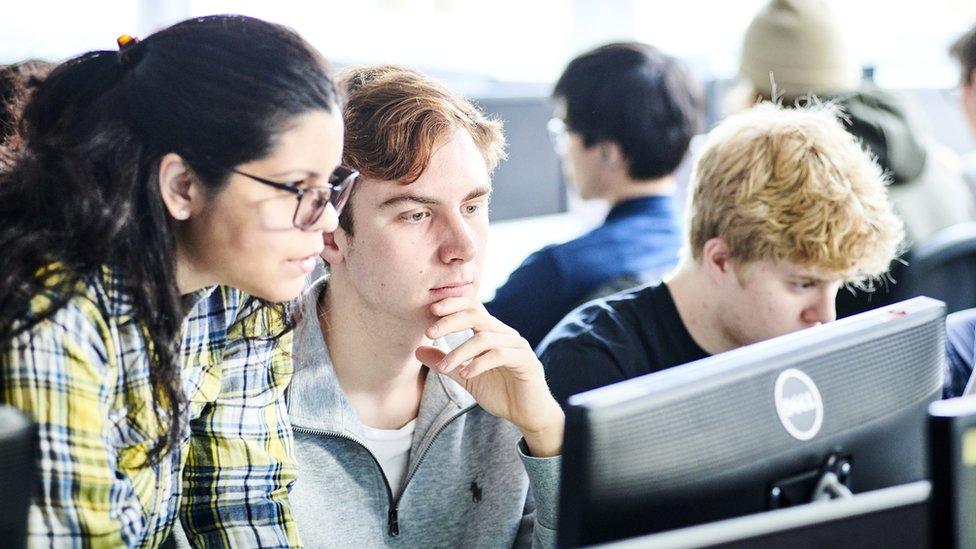
Durham University has made a determined effort to recruit more female computer science students
She says she and a whole team of people from across the university started a range of activities, many of them not aimed directly at A-level students.
There was a new Women in Tech group at the university, female students were taken to external events featuring prominent women technologists, and at open days they made sure that half the academics and students talking about the computing course were women.
Just as with her Bletchley Park campaign, Sue Black says social media played a crucial role.
"It's partly word of mouth because students that are having a great time tell their siblings or tell their friends," she explains.
"Teachers will see what we're doing as well, probably mainly through social media. And so they might be more inclined to encourage girls to apply to Durham."
Recent graduates also got involved, with inspiring stories about the opportunities available to those studying the subject.
Zulia Shavaeva, who now works at Amazon's cloud computing division AWS, said: "It was incredible to be part of a university and department that is not only incredibly supportive, but is so committed to bridging the gap between women studying and working in technology."
Prof Black admits it is hard to know exactly why the campaign was successful, but says the new undergraduates will be surveyed to find out what made them choose Durham.
Declining GCSEs
So far, so inspiring - but take a look at this year's GCSE entries, and prepare to be depressed about how many young women might be looking to study computer science in a few years.
I've written before about the replacement of the "information communication technology", or ICT GCSE, with a far more rigorous subject – Computer Science.
It has led to the unintended consequence of reducing the number of 16-year-olds - and particularly girls - getting any kind of computing qualification.
This year, the numbers choosing to study the subject at GCSE level are worryingly low - even if it is hard to draw too many lessons from the results of exams that were not actually taken.
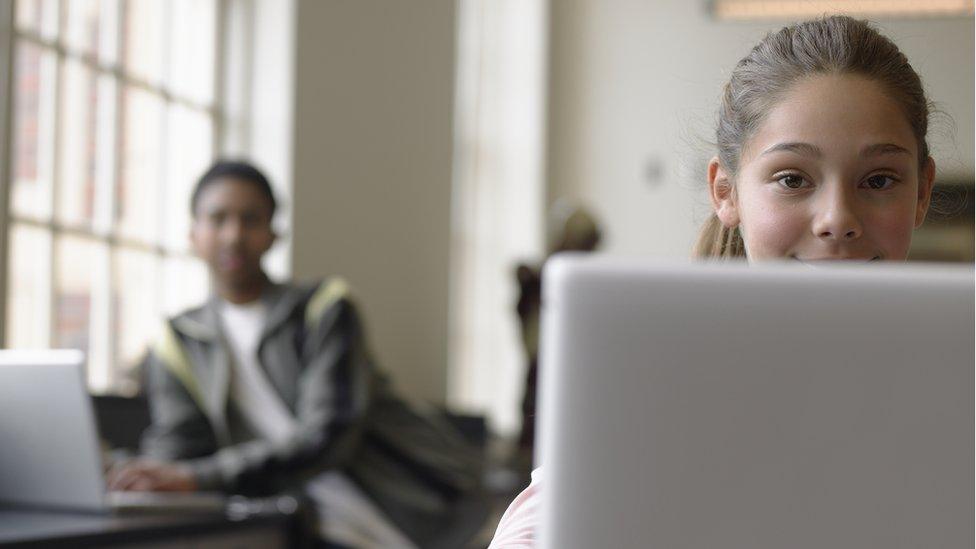
Numbers of GCSE students are up - but numbers in computing are down
As ICT was phased out, there had been a steady growth in the numbers taking the new Computer Science exam in England, Wales and Northern Ireland. In 2019, just over 80,000 took it, a 7% increase on the year before.
But in 2020, against a background of an overall increase in GCSE numbers, the number taking Computer Science actually fell to 78,459. What's more, the proportion of female entrants remained stubbornly low at just over 21%.
Remember, when many GCSE students took ICT, the female participation rate was above 40%.
The picture at A-level is a little better - or at least heading in the right direction.
There was an increase of more than 20% in the number of girls taking A-level Computing - though they still accounted for just 14.5% of total entries compared with 13% in 2019.
'Make it relevant'
Agata Nowakowska, from the e-learning company Skillsoft, has kept a close eye on these figures for some years, and says it is incredibly frustrating to see fewer students taking the Computing GCSE.
"Even worse is the stark gender gap we saw last year remaining virtually unchanged, as huge efforts have been made in recent years to encourage girls to study these subjects," she says.
She says there is a growing digital skills gap in British industry, and action is needed to make sure young people - and especially girls - are not put off taking these exams.
So does Sue Black have any answers?
She says there is a range of issues with the state of computing education in schools: a lack of trained teachers, and a new exam which appears intimidating to many.
But she says the main challenge is changing the image of technology for school students.
"Make it relevant to their lives and what they're doing. They're walking around with computers every day because they've mainly got smartphones. And so the more we could link courses into what they're doing on their phones, helping them to see that they could be creating rather than just using applications, the better."
Right now, it seems that computing just isn't a cool subject for many boys and for even more girls.
If we are to close the UK's digital skills gap, that has to change.
- Published16 August 2020
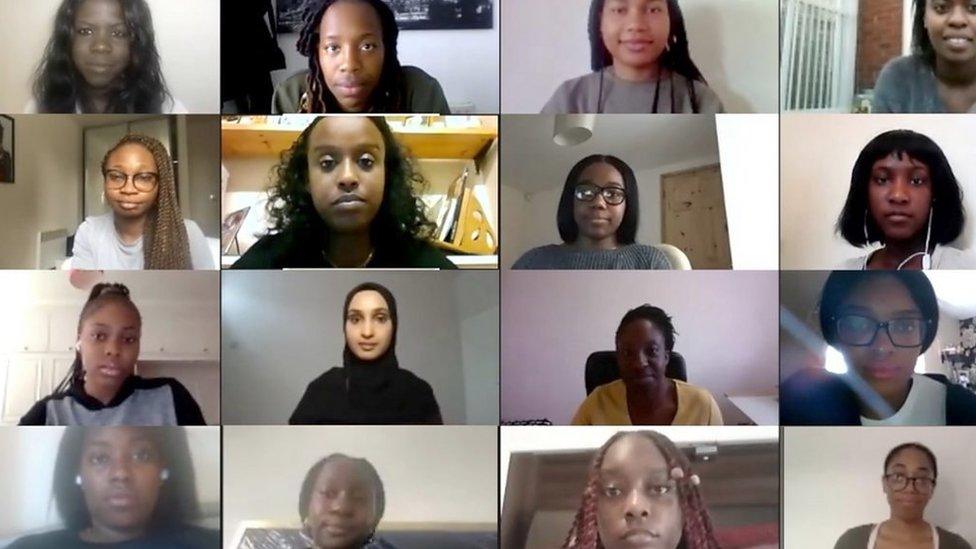
- Published26 November 2019
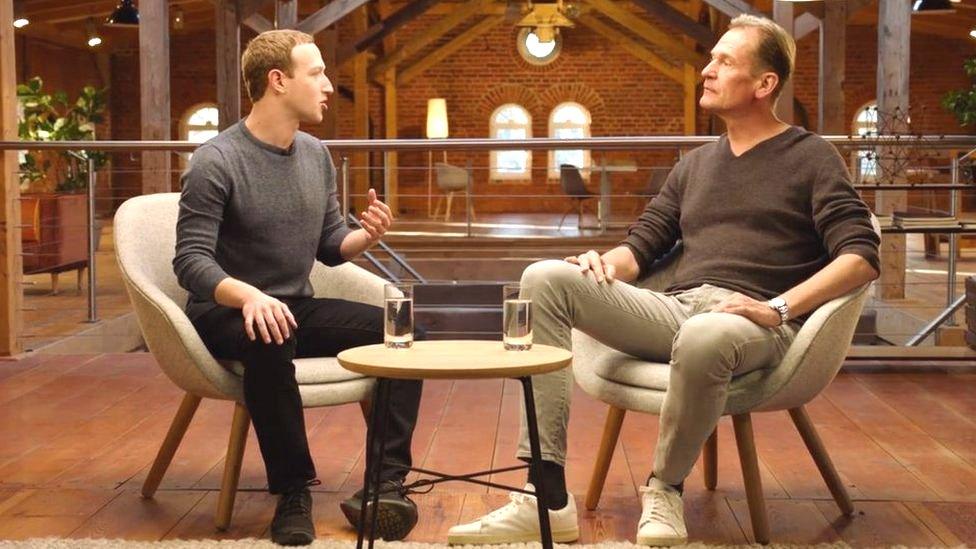
- Published2 October 2019
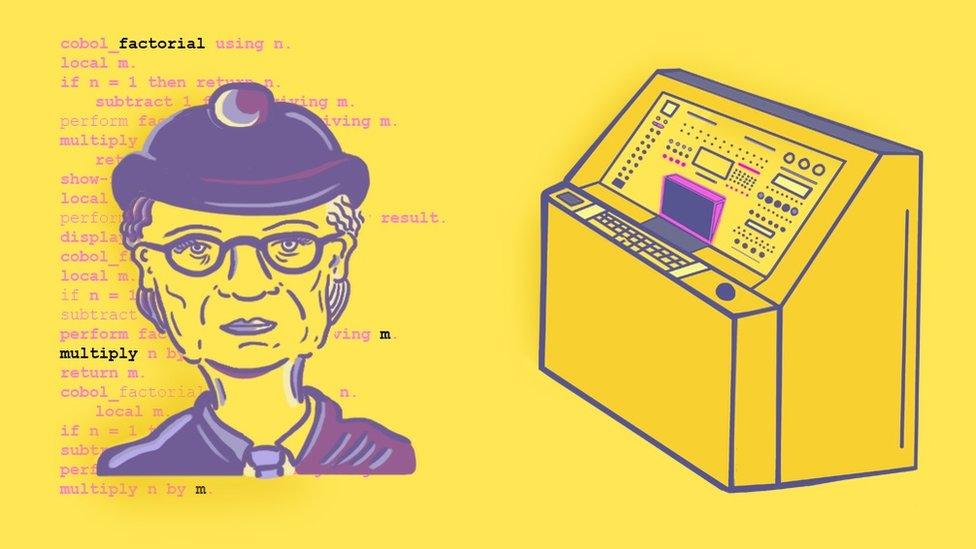
- Published8 October 2019
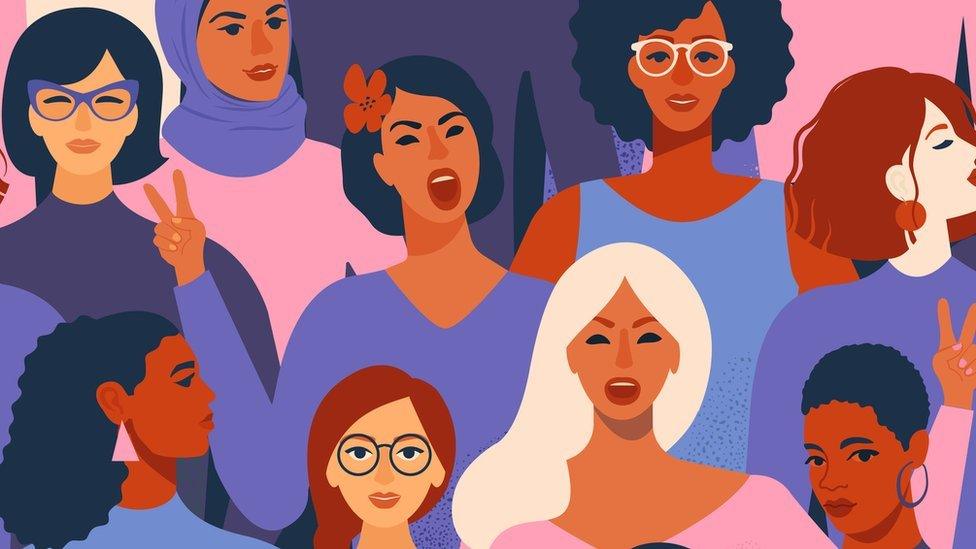
- Published10 November 2017
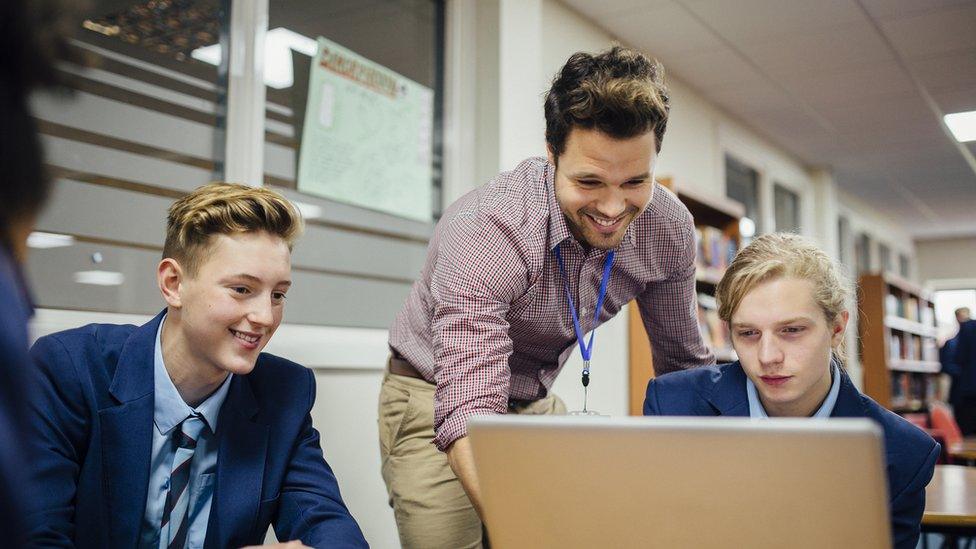
- Published24 August 2020

- Published21 August 2020

- Published27 November 2017

- Published19 December 2016
- Published8 May 2019
- Published16 May 2019
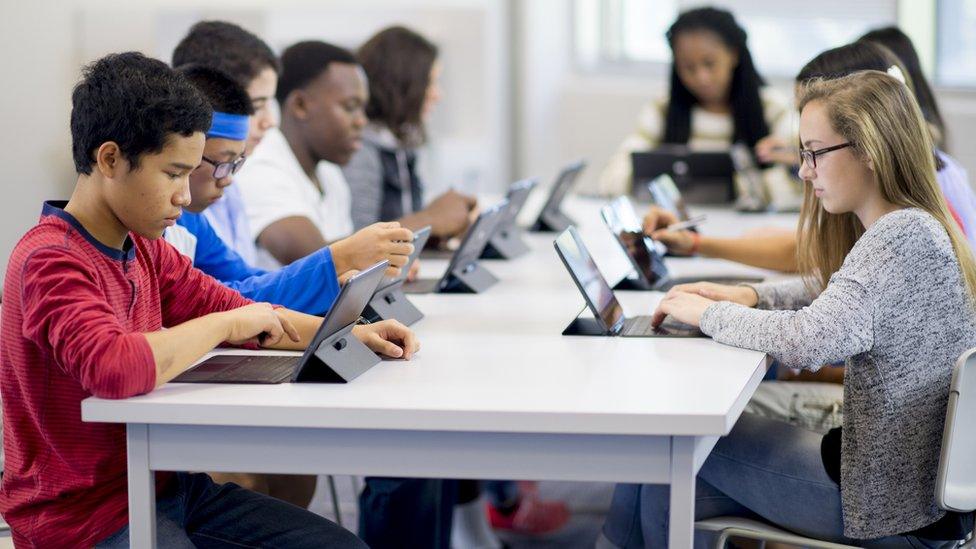
- Published8 January 2018
